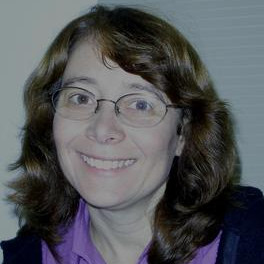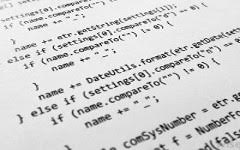Invited Talk: Search-Based Software Engineering: Past, Present and Future
The field known as Search-based Software Engineering (SBSE) is devoted
to the application of search-based techniques to solve different
Software Engineering (SE) problems. Search-based techniques include
algorithms from the optimization area, such as Genetic Algorithms, and
other evolutionary and bio-inspired ones. Such algorithms search, in a
potentially huge space, the best solution (or solutions) to solve a
problem according to some criteria, generally represented by an
objective function that determines the solution quality. Work on SBSE
dates back 1976 and the interest in the area began to gather pace in
the 1990s. The initial research starts addressing testing and planning
problems. The term was coined by Harman and Jones in 2001 and since
them successful SBSE approaches have been reported. The types of SE
problems to which SBSE is applied are hard problems that for, in
general, a simple and exact solution does not exist. For example, to
find the best refactoring sequence for a program, to allocate the task
resources in a best way, to structure the architecture of a system
satisfying factors such as cohesion and coupling, and so on.
Nowadays, we still observe a great interest in the area. New problems
have been addressed and new algorithms have been investigated. On the
other hand, we can identify some limitations and challenges for the
field. In this talk, I will give, first, an overview about past work
on SBSE and about the current state of the art. I will foucs on some
contributions of my research group, GrES/UFPR. Finally, I will discuss
possible new research directions in SBSE.
 Silvia R. Vergilio
received the MSc (1991) and PhD (1997) degrees from University of Campinas - UNICAMP, Campinas, Brazil. She is currently at the Computer Science Department at the Federal University of Paraná, Brazil, where she has been a faculty member since 1993. Silvia is head of the Research Group on Software Engineering (GRES) at UFPR. She has been involved in several projects and her research interests are in the areas of Software Engineering, such as: software testing, software architecture, software metrics, and search-based software engineering.
Silvia R. Vergilio
received the MSc (1991) and PhD (1997) degrees from University of Campinas - UNICAMP, Campinas, Brazil. She is currently at the Computer Science Department at the Federal University of Paraná, Brazil, where she has been a faculty member since 1993. Silvia is head of the Research Group on Software Engineering (GRES) at UFPR. She has been involved in several projects and her research interests are in the areas of Software Engineering, such as: software testing, software architecture, software metrics, and search-based software engineering.
Technical Session #1
Comparing Low Level Heuristics Selection Methods in a Higher-Order Mutation Testing Approach
Jackson Prado Lima (UFPR), Silvia Vergilio (UFPR)
N2PC: Um Algoritmo Evolucionário Multiobjetivo baseado em Cones Poliédricos construídos através de Preferências
Pamella Sousa (UECE), Raphael Saraiva (UECE), Allysson Allex Araújo (UECE), Gustavo Campos (UECE), Jerffeson Souza (UECE)
Uma proposta de geração automática de algoritmos de refatoração
Thainá Mariani (UFPR), Silvia Vergilio (UFPR), Marouane Kessentini (University of Michigan)
Technical Session #2
Abordagens de priorização de características para projeto de arquitetura de LPS baseado em busca
Diego Silva (UEM), Matheus Cecílio (UEM), Thelma Colanzi (UEM)
Análise de estilo de programação com Rede Neural Recorrente para aprovação automática de pull request
Lucas Roque (UFG), Altino Dantas (UFG), Celso Camilo-Junior (UFG)
Uso da Meta-heurística Biased Random Key Genetic Algorithm no Next Release Problem com Configuração Automática de Parâmetros
Andre Andrade (UNIRIO), Márcio Barros (UNIRIO), Adriana Cesário de Faria Alvim (UNIRIO)
Working Groups Meeting
Discussion about common research themes to motivate future collaborations
Workshop participants









 Silvia R. Vergilio
received the MSc (1991) and PhD (1997) degrees from University of Campinas - UNICAMP, Campinas, Brazil. She is currently at the Computer Science Department at the Federal University of Paraná, Brazil, where she has been a faculty member since 1993. Silvia is head of the Research Group on Software Engineering (GRES) at UFPR. She has been involved in several projects and her research interests are in the areas of Software Engineering, such as: software testing, software architecture, software metrics, and search-based software engineering.
Silvia R. Vergilio
received the MSc (1991) and PhD (1997) degrees from University of Campinas - UNICAMP, Campinas, Brazil. She is currently at the Computer Science Department at the Federal University of Paraná, Brazil, where she has been a faculty member since 1993. Silvia is head of the Research Group on Software Engineering (GRES) at UFPR. She has been involved in several projects and her research interests are in the areas of Software Engineering, such as: software testing, software architecture, software metrics, and search-based software engineering.
